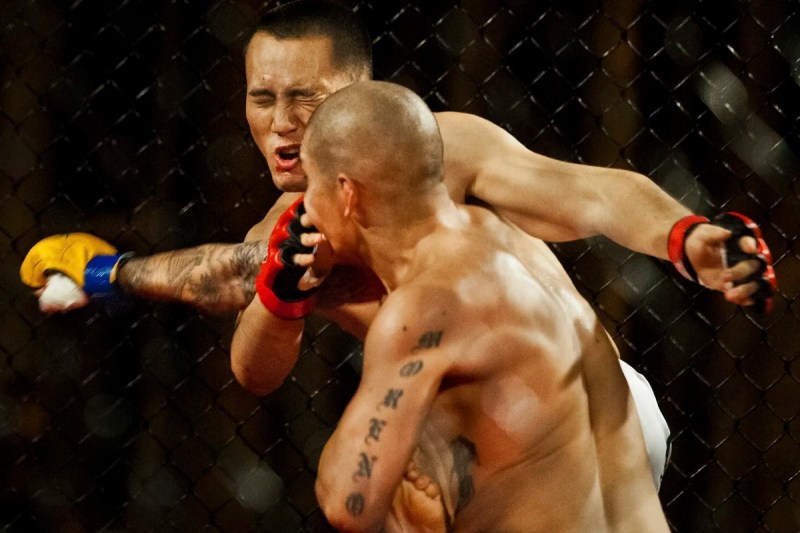Since shooting past boxing in popularity in the early 2000s, the UFC has built a minted empire. A May 12 earnings call revealed that the Endeavor Group’s revenue from March 31, 2021, to April 1, 2022, passed $1 billion. This makes investors, entertainment groups, UFC president and promoter Dana White, and top-billing fighters very rich. For mixed martial art professionals, this comes at the cost of lower-level fighters and binding contracts.
Have you ever wondered what a UFC fighter’s contract looks like? When an MMA competitor signs a contract to fight three to four annual fights, they give away representational rights. Instead of a union serving as an exclusive representative to collectively bargain with the UFC for wages, hours, and working conditions, each professional is on his or her own, operating essentially as an independent contractor. Under these agreements, fighters are obligated by the terms of contracts, no matter how onerous. And they have no recourse should they be summarily released.

In 2020, the average contracted UFC fighter earned approximately $148,000 with bonuses and base salary combined. This might seem like a lot of money to fight three or four times in a year, but, as we see in other sports, the time leading up to the opening bell is filled with months of exhausting training, extreme nutritional demands, and months of singularly focused self-sacrifice.
For veterans like Nate Diaz, these contracts can cause issues. Before scheduling his September 10 bout against rising unbeaten welterweight star Khamzat Chimaev at T-Mobile Arena in Las Vegas, Diaz was locked in a dispute with UFC and White, accusing the organization of holding him hostage before he could test free agency. (White responded by pointing out the contract guarantees a certain amount of fights per year — and Diaz would get compensated even if the UFC didn’t deliver the required matchups.)
Now Diaz is locked into one of the toughest fights of his career, his last for the UFC. Coincidentally or not, this won’t be an easy out for Diaz, who is on a two-fight losing streak — a severe cut stopped his UFC 244 main event against Jorge Masvidal, and then Diaz lost a unanimous decision to Leon Edwards at UFC 263.
While the official UFC 279 purse has yet to be publicized, we can get a glimpse of what might be on the line from fighters’ previous numbers. When Diaz beat Manvel Gamburyan to win The Ultimate Fighter 5 in 2007, Diaz took home $16,000, as reported by The Sports Daily. Before facing Conor McGregor, Diaz’s highest salary was $147,000 against Jim Miller in 2012. With McGregor on the card, those salaries trebled. Diaz made $620,000 for the first McGregor fight and $2,070,000 for the second. Losing to Leon Edwards, by comparison, Diaz took home $271,000.
This is good money, but peanuts compared to what the organization is taking in. According to the Way of Martial Arts, in fact, only three MMA boxers have earned over $10 million collectively for bouts over their careers. Low-tier fighters only make about $10,000 to $30,000 before they begin ascending the ladder.
At the middle tier, you have big prospects like Chimaev who earned $73,500 in his UFC debut against John Phillips. The brawler already had several matches under his belt before making the jump to the UFC — first with Fight Club Rush 3 and then with the Bahrain-based BRAVE Combat Federation. In 2020, after winning his first bout, Chimaev’s salary leapt to $143,500 in 2020 when he beat Gerald Meerschaert. This amount includes win and performance bonuses in addition to sponsorship money.
Diaz and Chimaev may earn solid livings from fighting in the UFC, but they are essentially at the top of the pay scale. Under contract, they are blocked from negotiating their own endorsement deals and are required to show their faces to promote the sport. If not, the UFC can pull the rug out from under them.
The UFC, for example, blocked independent sponsorship deals signed by Quinton “Rampage” Jackson. Subsequently, the UFC inked its own agreements with the same companies. And in 2016, White scrapped a Conor McGregor fight (the sport’s most well-known star) when the boxer failed to appear at a promotional event.
As MMA continues to grow, recent history suggests that the UFC is going to continue swimming in cash. If its fighters are going to eventually earn their fair share of that pie, it’s likely that at some point, they’re going to have to unionize like their brethren in baseball, football, and basketball. This will be impossible, however, if they don’t band together. UFC welterweight champion Kamaru Usman has his doubts on whether or not this can happen, though.
“It’s number two, three, four, five, six, seven, eight, nine, 10-ranked that’s willing to jump in and take your spot,” Usman said during an I Am Athlete episode. “They know they’s gonna get more chips than you than they getting right now. So that right there makes it almost damn near impossible to be able to stand up and accomplish that.”



